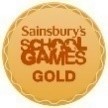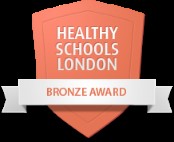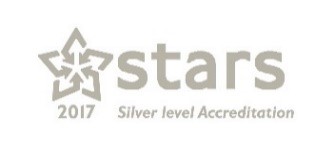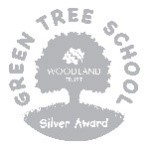Reading
We believe in a strong reading culture and recognise that a secure foundation in reading is crucial to a child's success through school and beyond.
Intent
At All Saints’ CE Primary School, our mission is to fulfil the National Curriculum requirements for English, incorporating its programmes of study for Reading into everything we do, basing our learning on a broad and balanced curriculum and striving to deliver a wide and varied learning experience. We are a ‘reading school’: a school where our pupils thrive through a shared love of reading. We value reading as a key life skill and are dedicated to enabling our pupils to become lifelong readers with a passion for books. We continually recognise the key link between reading and writing and know that our school’s ongoing focus on developing and extending children’s reading abilities has a direct, positive impact on their writing skills.
Reading is given the highest priority within All Saints’ School. Pupils are involved in a variety of reading experiences on a daily basis, including reading for pleasure as well as for information, being read to, and both guided and individual reading with an adult. All pupils will learn to read, write, spell and speak at an age-appropriate level and in line with age related expectations. They will be exposed to a wide variety of texts, genres and authors, being involved in the choosing process for many books as well as having texts carefully chosen for them to ensure that all areas of the English curriculum are covered.
Pupils will become confident and coherent readers with a clear understanding of reading for pleasure, in groups and to a wider audience. They will learn to explore and acquire strategies to ensure a comprehensive understanding of what they are reading. By the time children leave All Saints’, they will be competent readers who can recommend books to their peers, have a thirst for reading a range of genres, and participate in discussions about books, including explaining their ideas and opinions as well as evaluating an author’s use of language and the impact that this can have on the reader. We believe that our children should not only reach their best academically, but also develop a thirst for knowledge, foster a love of learning and leave our school with exceptional independent learning skills. They will understand the pleasure gained from engaging in a good book and will use it to explore their imagination and creativity.
Implementation
Each curriculum subject has a dedicated subject leader with clear roles and responsibilities. We have a rigorous and well-organised English curriculum based on the National Curriculum that provides many purposeful opportunities for reading and discussion. The role of the subject leader is pivotal in its successful implementation: our English leader prepares a detailed medium term curriculum map documenting the required progression of knowledge and skills from year group to year group, and then works closely with the other class teachers during the planning process; attends courses and initiatives to ensure that the teaching of the subject is kept current, feeding back to and continually supporting other teachers to ensure that they are confident in the skills that they are teaching; and researches enrichment opportunities such as theatre trips and guest speakers that are relevant to pupils’ learning and bring the subject to life. All of our staff are role models for the children and model the learning requirements clearly for all lessons in all subjects.
All lessons have clear objectives and steps for success; they use skills- and knowledge-based learning and are effectively planned by class teachers to meet the needs of the whole class, providing challenge for all and taking into consideration special educational needs, pupil premium and more able learners. Phonics is taught daily in Reception and Year 1, with additional sessions provided for Year 2 where required. We will utilise the new Little Wandle Letters and Sounds Revised scheme once introduced and teachers and teaching assistants will be trained via CPD to cater for pupils’ individual needs. Both guided and individual reading sessions take place daily across Years 1-6. These include a structured timetable of reading activities and opportunities to read with teachers and teaching assistants. They are delivered via a consistent approach across the school.
All Saints’ utilises the Power of Reading learning resource. The programme supports raising engagement and attainment in reading and writing for all children, using high quality texts which are chosen by experts. Children read and discuss a wide range of genres to support their writing during a series of teaching sequences. Power of Reading texts are displayed on the door of each classroom, reflecting how we see reading to be a key focus of every day, along with VIPERS questions and answers. Children from Years 1 to 6 have weekly formal reading comprehension lessons sourced from the Cracking Comprehension learning resource and use ‘VIPERS’ as the key method to develop and enhance their comprehension skills, focusing on the six key domains in the National Curriculum. Any children from Year 2 onwards requiring additional support with reading and/or comprehension are assisted during targeted early morning interventions which are planned and reviewed by the Inclusion Leader, English Leader and SLT on a termly basis. Year Six children are invited to attend comprehension booster classes in the months prior to SATs if required.
We pride ourselves in forging strong links with our parents and carers with regard to reading. Home school reading journals provide communication between teachers and families and we always encourage and welcome parent volunteers for one-to-one reading sessions with children. We believe in a collaborative partnership with parents, which is evidenced by the sharing of learning both in school and at home through the online platforms of Tapestry and Google Classroom. In Reception, we have a weekly ‘Secret Reader’ where a family member or carer is not revealed until they enter the room to read a story. In addition, each class has a class book to promote reading for pleasure; books are chosen by pupils focusing on reasons why they wish to read a particular book. These class books are displayed on classroom doors along with the pupils’ reasons for the choice.
There is a well-presented book area in each classroom. These areas offer an inviting opportunity to select a range of books from the library chosen by the pupils along with their teacher. Books are changed each half term in order to offer variety and challenge. The library is an important part of our school; we have worked closely with professionals to create a stimulating environment in order to nurture children’s love for reading.
At All Saints’, we enhance pupils’ English Reading learning by providing enriching experiences that are memorable for them, including a variety of opportunities for learning outside of the classroom. There have been whole-school reading initiatives such as Extreme Reading - where teachers and children shared pictures of themselves reading in unusual locations - and Shelfies – where ‘selfie’ pictures of children and staff reading their favourite book were also shared. In addition, assemblies are held by local authors and encouragement is always given for children to enter author competitions as and when they arise. As with the rest of the country, we share our love of reading annually with a large World Book Day celebration. This involves all children and staff dressing up as their favourite book characters, sharing their much-loved books and all taking part in both class and school-wide activities. The reading-buddy scheme between classes in KS2 and KS1 helps engender a spirit of nurturing care and sharing on the part of the older students as well as a delight in reading and listening in the younger years.
Impact
Children of all abilities are engaged and challenged in Reading sessions; they become determined, independent learners who progressively improve their skills and knowledge to be the best that they can be.
All subject leaders have the knowledge, expertise and practical skills to be able to lead their areas effectively. They are responsible for the curriculum design, delivery and impact in their own curriculum area. Subject leaders and leaders at all levels, including Governors, regularly review and quality assure the subject areas. This ensures that they are being implemented well and that coverage, breadth and balance is appropriate.
Pupils at All Saints’ read regularly for pleasure, enjoyment and to find information. They employ a range of strategies to decode unfamiliar words or phrases. Termly pupil progress meetings between subject leaders, the senior leadership team and teachers ensure that progress is monitored. These feed directly into interventions that take place as required. A range of genres are taught across the school (progressing in difficulty) resulting in pupils being knowledgeable about literary styles and authors; they can discuss books with excitement and interest, expressing preferences and giving opinions - supported by evidence - about different texts. Through the teaching of phonics using systematic reading books, the vast majority of children become fluent readers by the end of Key Stage One, with support being put in place for those who need extra help.
Throughout all reading sessions, ongoing formative assessment of reading ability takes place; this allows teachers to provide any support necessary to ensure that every child can maximise their reading potential and is not hindered in other subjects in the meanwhile. Each term, children from Years 1 to 6 (and Reception in the summer term) complete a summative assessment to demonstrate their reading comprehension skills; the Rising Stars PIRA papers are used, which provide detailed analysis of the range of skills required to determine attainment and progress made against planned National Curriculum requirements, as well as against the progression of skills and knowledge documented in the curriculum map. The results from these are combined with the formative assessments to determine children’s progress and attainment and to plan their next steps. Additional ways of assessing the impact of our English curriculum include lesson observations, learning walks by the Subject Leader and/or the SLT, annual reporting to parents of standards across the curriculum and pupil discussions about their learning, for example, during lessons and in Big Voice sessions (our pupil voice forums). For younger children, particularly in Reception, images and videos of their learning are regularly reviewed. Furthermore, parents and carers have a good understanding of how they can support reading at home, and are encouraged to contribute regularly through the use of home-school reading records.







